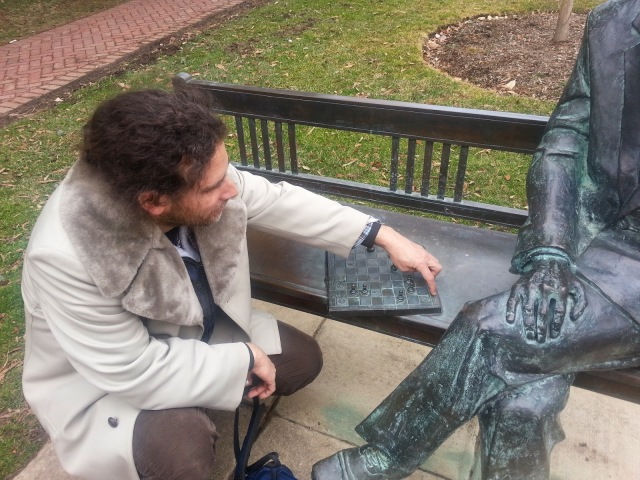How to Raise Funds: A Manual for Cuban Democrats
Clive Rudd, Orlando Luis Pardo Lazo
The successive “investigations” (or filtrations of intelligence) of the Associated Press (AP) and other media, that try to demonize the material support of Non Governmental Organizations (NGOs) and governments in solidarity with the democratic cause in Cuba, is not a new phenomenon nor is it exclusive to the free world.
The Cuban government has known how to utilize the attacks on the funding for democracy. This has been at the expense of committing historic malapropisms that defy any comparison with the fundraising done by José Martí and his Cuban Revolutionary Party, or even by Fidel Castro in his insatiable quest for dollars in Mexico, Costa Rica and Venezuela (which was then not to fund anti-government propaganda but to buy weapons and train armies and, in short, impose violence for life on our society).
The new form of expression of this demonizing campaign (which essentially plagiarizes the methods employed by the Havana government) is led by the AP and The New York Times (NYT). There are many other “useful idiots” but their voices don’t resonate as much. Since the time of the Sierra Maestra and the bad reporting by Herbert Matthews, Castroism has been a series of blows to maudlin effect on North American public (shameless) opinion.
It is obvious that the message of these hegemonic media cannot be so clumsy as that of the Havana dictatorship, being that they convey between the lines a subliminal message to the Good Capitalist of the North: “The donation of funds by the US Agency for International Development (USAID) and other organizations to support democracy in Cuba, far from achieving the desired objectives, is counterproductive and useless.”
This message is more than well-known. It is the same argument employed with impunity to lobby for the lifting of the embargo: “The embargo doesn’t work and therefore should be lifted immediately and unconditionally.”
All right, then. In the name of the Cuban and North American peoples, thank you. However, the problem lies in that to defend this argument of inefficiency, there need to be firm proofs, not opinions. Also, the most solid proofs are achieved by comparing the initial objectives of a program with its final results. Here is where things get tough because, for a serious news medium to say that a program was “amateurish and profoundly unsuccessful,” there must be access to documents that have gone cold and are now obsolete (which the AP has been able to gain) but there also must be investigative reporting done that includes access to all or the major parties involved in the matter, including the Cuban people.
As has been known from responses of certain parties included in the AP’s last crusade, all indications are that there have been lies or results have been fabricated to rate these USAID programs as “profoundly unsuccessful.”
According to his interview in the El Nuevo Herald newspaper, Aldo Rodríguez, leader of the musical group Los Aldeanos, did not receive one cent from USAID, he did not compose his songs at the request of this agency, nor did he receive a laptop from subversive foreign elements — three assertions made in an “objective” piece by AP.
These campaigns of the AP, in symbiosis with the Cuban government, to demonize fundraising in support of pro-human rights projects on the Island, have media reach precisely because the national public is a captive audience under the monopoly of the State, and also because it is not common for us Cubans to do public fundraisers, as occurs in any democratic country of the world.
In countries where there are free elections and institutions, fundraising rules and regulations have been created and there are even specialists trained in the technique of quickly and effectively raising monies for political campaigns and the propagation of ideas. This is a subject yet to be included in the curriculum for Cuban democrats and any other social actor who will not want to submit himself to a despotic governmental dictum.
It would be most useful for our civil society, inside and outside Cuba, if we would create a sort of manual for raising funds legally and efficiently to support the alternative projects on the Island. Thus, we Cubans would be the ones to judge which citizen initiatives have been successful and which ones not so much, as we learn from their results to improve those methods of collecting, distributing and utilizing funds for democracy in Cuba. The ends justify the means.
Cuba’s solvency was always handicapped by Castroism. Only a poverty-stricken people is vulnerable to enslavement. At the beginning, it was accomplished through ideological class hatred. Currently, in Castroism’s latter days, it is done through paranoia about a foreign conspiracy (even though Havana has received funding from the United Nations as well as from Qaddafi’s criminal regime).
Therefore, People, perhaps it is time for us to behave less as secret victims and more as modern members of a global economy, transparent in its accounts and convinced of the legitimacy of its anti-totalitarian mission, beyond the laws of Castroism and the media campaigns that prop it up.
Enmeshed in the Raul regime make-believe reforms, we Cubans should not lose our focus to a Fidel who is as much fossil as fatal. Despite the pathetic AP and the NYT, our radical redemption still goes by this watchword: “Within the dictatorship, nothing; against the dictatorship, everything.”*
*Translator’s note: This last line is a riff on Fidel’s famous/infamous statement, “Within the Revolution, everything; outside the Revolution, nothing,” from his so-called “Speech to the Intellectuals” delivered in June 1961.
Translated by: Alicia Barraqué Ellison
26 December 2014

